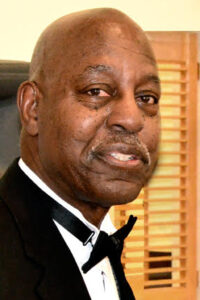On February 27, 2023, the Smerconish.com Poll question asked, “Should newspapers drop the Dilbert cartoon?” The situation surrounding that question sparked debate on whether people agreed with the statement “It’s okay to be White” as well as categorizing Black Americans as a “hate group” and suggesting that White people should “get the hell away” from them is no doubt a trolling of the Black Lives Matter movement. And perhaps intentionally, it plays into the “Woke” categorization of Critical Race Theory and the banning of the Black History debate. In my opinion, the Dilbert cartoon should be dropped. But that would only be a one-time hit against such racial provocations that will undoubtedly rear its head again with time. It will happen because the issue of race is far more complex than can be exemplified in this one incident.
Attempts to hold “rational discussions” about such issues are virtually impossible. It is because Americans rarely know how to hold true race conversations. This is a long-held personal view, but it is not without evidence. We are not prepared to have these conversations –not because of lack of desire in many cases, but because, as one Miami Herald writer wrote, “when people think they’re talking about race, they really aren’t. They are talking instead about the myths, resentments, projections, and suppositions by which they justify half-baked notions about who those “other” people are.” A case in point would be the March 2015 Starbucks “Race Together” initiative to have a dialogue on race. In less than 24 hours later, negative reactions poured in, and they had to terminate the experiment.
Race provocateurs take advantage of this educational deficiency in using the controversy to draw in readers, listeners, and viewers to enhance their bottom-line profits. This practice is certainly not new. How can we forget how former radio personality Rush Limbaugh regularly took advantage of this issue in his radio broadcasts? How can we forget that, with little push-back from mainstream media, President Obama and the healthcare law he signed were targets of Limbaugh’s on-air race-baiting antics? On several occasions, Limbaugh told radio listeners that President Obama wanted Americans to have the same kind of healthcare they have in his ancestral home of Kenya-unmistakable racial trolling.
The profit motive behind being racially provocative with language is embedded within the American way of life. In response to derogatory labeling of the Patient Protection and Affordable Care Act as “Obamacare,” President Obama said it was created out of an organizing tool of (hatred) towards him. That characterization makes clear that the term is not neutral. So where do we go from here? It is to do what one writer said, have an “education on race.”
On that basis, I suggest we start by doing some self-reflection about using this word (Obamacare) that is still circulating as a description for our healthcare system. Ask first, is there a race component in the use of the term? Does it represent either complimentary or derogatory politics? Is it a litmus test on support or opposition towards the former President? Are there still people who will not sign up for health care on the Government Exchanges because of the name? Are there still politicians or people in media for whom the word is coded messaging and signaling to others aimed at biases of race or ethnicity without saying so outright?
No doubt, race is a complex issue for all of us to address. The question we must all ask is, will the cancellation of the Dilbert cartoon have an overall positive benefit going forward regarding the resolution of our long-standing racial problems? Sadly, I do not believe it will. This conclusion is based on the words of Scott Adams, the cartoon creator who said that his remarks were “hyperbole.” In other words, they were not to be taken seriously. Sadly, that is the problem. In far too many cases, race provocateurs fail to realize the hurt and pain they inflict upon members of the Black community while they laugh all the way to the bank.
However, if this country can put a man on the moon, surely it could develop race-based curriculums that will give our young people in schools the tools to navigate society without behaving racially insensitively. As adults, our start has to be with the acknowledgment that we do not know how to hold honest race conversations. A good place to start is with sincere and truthful self-reflection on our use of the word “Obamacare.”
____________________________________________________________________________________________________________________

Rev. John L Lambert
Rev. John L Lambert is a substitute teacher and serves as a volunteer in church ministry.
Lambert has a BA in Sociology from Southern Illinois University-Carbondale, a master’s in public administration from U of I Springfield, and a Masters of Divinity from Christian Theological Seminary in Indianapolis, Indiana.
He was employed in the Illinois State government for 28 years, formed the Illinois Association of Minorities in Government (IAMG) in 1987, then later became its first Executive Director. Lambert was elected to the Springfield district #186 School Board in 1980, appointed by the Mayor of the City of Springfield as a member of the Lincoln Library Board of Directors. He also Founded Faith Temple African Methodist Episcopal Church in 1984 in Springfield, IL.






